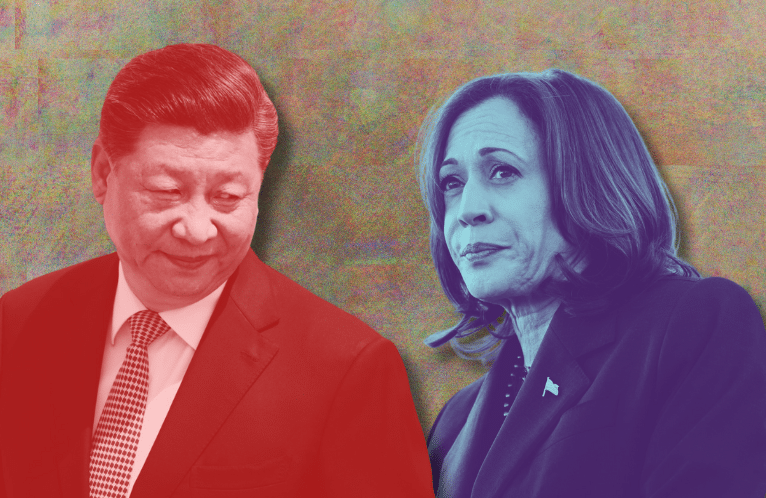Xi Jinping Thought and Why It Matters
- Analysis
 USCNPM Archive
USCNPM Archive- 02/15/2024
- 0
Patricia Thornton is an associate professor in the Department of Politics at the University of Oxford and the University of Oxford China Centre, and Tutor in the Politics of China at Merton College.
The following article reviews The Political Thought of Xi Jinping by Steve Tsang and Olivia Cheung, Oxford University Press, £24.99. To purchase a copy, please visit the publisher’s website.
During the National Conference on Propaganda, Ideology, and Cultural Work in Beijing last October, Politburo Standing Committee member Cai Qi proudly introduced the world to the latest ideological contribution of China’s preeminent leader: Xi Jinping Thought on Culture, the latest installment in the seemingly endless list of the General Secretary’s ruminations. These now include Xiplomacy, Xiconomics, and Xihistory among others. The following day, state-run Hunan Radio and Television rolled out the five-episode series, “When Marx Met Confucius,” to shed helpful light on the “two combinations,” a cornerstone of the General Secretary’s cultural thought.
Set at the Yuelu Academy, a revered center of higher learning established under the Song Dynasty in 976 AD, the series features the AI-enhanced figures of Karl Marx and Confucius discussing the fusion of dialectical materialism with “China’s excellent traditional culture” in order to face a common foe: the evil specter of historical nihilism. In the final episode, with the Yuelu Academy in the background, the luminaries embrace each other warmly and express boundless gratitude to Xi Jinping’s “second combination” for reconciling their philosophies into a new synthesis with Confucianism as “the root,” and Marxism, “the soul.”
It is both easy and tempting to mock the series. Indeed, many Chinese netizens did. As this impressive new volume argues, however, Xi Jinping Thought on Socialism with Chinese Characteristics for the New Era is much more than a mere vanity project: it forms the backbone of a new political ideology, or, perhaps, proto-ideology, of the Chinese Party-state.
Tsang and Cheung maintain that the institutional “hardware” of China’s political system has changed relatively little under Xi; but the “software,” or how the system actually operates, has been substantially transformed by Xi’s ambitious “upgrade.” Having inherited a Party-state in apparent crisis from his predecessor, Hu Jintao, Xi has engineered a new modus operandi that Tsang and Cheung dub “Sino-centric consultative Leninism.” Originally introduced in a widely cited 2009 article, Tsang’s “consultative Leninism” described the Chinese Communist Party under Hu Jintao as having developed an array of practices for taking the pulse of the Chinese public.
According to Tsang, this system relied upon a combination of “public opinion management,” sustained economic growth, and governance reforms to pre-empt popular pressure for democratization. The trappings of rule of law, civil society, and human rights discourses were to be called upon when necessary to make the Leninist system appear responsive to public needs, but without ceding operative power to forces outside the Party itself. Notably, however, “consultative Leninism” required the regime to constantly perform something akin to a high-wire act, balancing the management of the economy and lower-level demands for inclusion and representation—coming as often from local and grassroots government as from the citizenry itself—as the country inched forward on its developmental trajectory.
In this new reading, Tsang and Cheung argue that while Xi has kept the core “hardware” of the consultative Leninist model going, he has tweaked the system in three fundamental ways to correct for the centrifugal tendencies introduced by Hu’s perceived over-emphasis on consultation and collective decision-making. First, Xi has concentrated power in the Party apparatus by emphasizing its “vanguard” role across both the economy and Chinese society and by unleashing a thorough anti-corruption campaign. Second, he has greatly amped expressions of nationalism within the system, unleashing a coterie of so-called “wolf-warrior” diplomats who respond aggressively to perceived and actual slights on the international level, and rallying the people to the cause of the “great rejuvenation of the Chinese nation.” Third, and finally, he has consistently concentrated decision-making power in his own hands, emphasizing his own role as the Party’s designated “core.”
In the view of the authors, Xi may have made himself into China’s new strongman, but it cannot yet be said that he’s created a personalist dictatorship: instead, his “system upgrade” has made the Chinese Communist Party “more efficient, effective, and capable of leading China” (40). Here it’s worth pointing out that the time lag built into the academic publication process sees meticulously researched studies like this released weeks or months after current events have eroded their beautifully crafted conclusions. In this case, with memories of China’s disastrous rolling lockdowns under Xi’s unyielding ‘zero-COVID’ injunctions and the so-called ‘A4’ protests of a year ago still fresh in our minds, we might have to take the authors’ most positive assessments of Xi’s “software upgrade” with a sprinkling of salt. Nonetheless, Tsang and Cheung have produced an impressively researched and carefully argued study that leaves little doubt that understanding Xi Jinping’s political thought provides invaluable insights into where China is heading in the twenty-first century and why.


